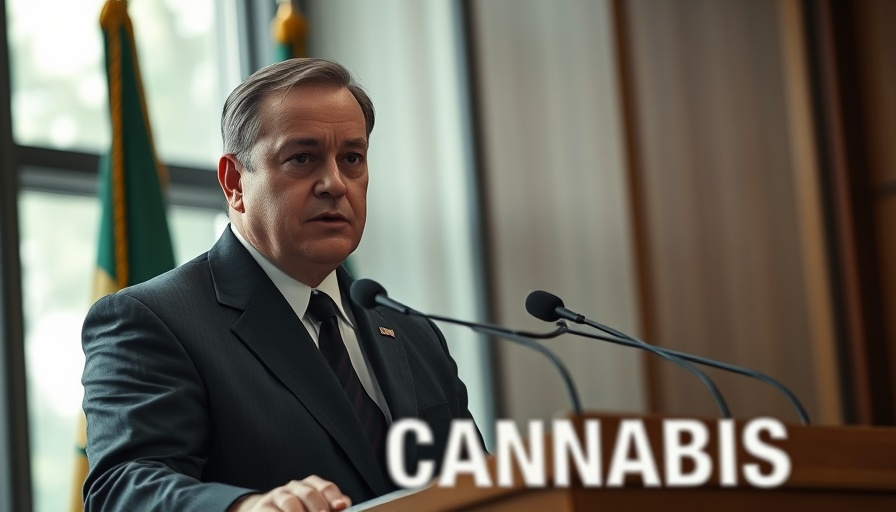
The Future of Cannabis: A New Dawn?
The recent discussions surrounding the rescheduling of cannabis have ignited hopes for an industry long plagued by strict regulations and stunted growth. President Donald Trump, during a high-profile fundraiser, hinted at a possible shift in federal cannabis policy, contemplating moving cannabis from Schedule One to Schedule Three under the Controlled Substances Act. This discussion is monumental for many within the cannabis industry.
In 'Re-Release of Cannabis Coast to Coast - Is Trump Ready to Deliver on Rescheduling? 2 Weeks?', the discussion dives into the potential rescheduling of cannabis, exploring key insights that sparked deeper analysis on our end.
Why Rescheduling Matters
Rescheduling cannabis would bring multiple advantages. Firstly, by moving cannabis to Schedule Three, companies could finally escape the pitfalls of IRS rule 280E, which currently prevents them from deducting basic business expenses like payroll and rent. This change could help transform the fortunes of many cannabis businesses and add significant weight to the economy surrounding this booming industry.
Rallying Support in Congress
A Republican congressman from Florida, Greg Stwie, has introduced legislation there to solidify this potential change. The 'Marijuana 103 Act' would mandate the Attorney General to reclassify cannabis within 60 days if passed. This legislation would not only signify a step forward in cannabis reform but also highlight the growing acceptance of cannabis in American society.
Concerns and Opposition
However, the move is not devoid of opposition. Some conservative lawmakers continue to express concerns, citing potential risks associated with adult use and its implications for younger populations. This internal division among lawmakers presents an interesting dynamic as the industry awaits any legislative action.
Healing Perspectives from Communities
Groups across the nation support the reevaluation of cannabis laws, recognizing its medicinal benefits. Nearly 90% of Americans now acknowledge the legitimate health applications of cannabis, especially in managing chronic pain and other ailments. Moreover, events like the Women in Cannabis Expo highlight the stories of dedicated activists and entrepreneurs who are advocating for reform, showcasing the human resilience behind the movement.
As discussions unfold in Washington D.C., the cannabis community remains hopeful yet cautious. The reclassification may not resolve all issues at once, but it could pave the way for broader legislative reforms, including safe banking and interstate commerce. Organizations and advocates emphasize the need to keep pushing for reform, ensuring the struggles of those in the community are heard and addressed.
In a country increasingly open to diverse cannabis legislation, the question remains: Will Trump’s administration follow through on this promising potential for change?
 Add Row
Add Row  Add
Add 




Write A Comment